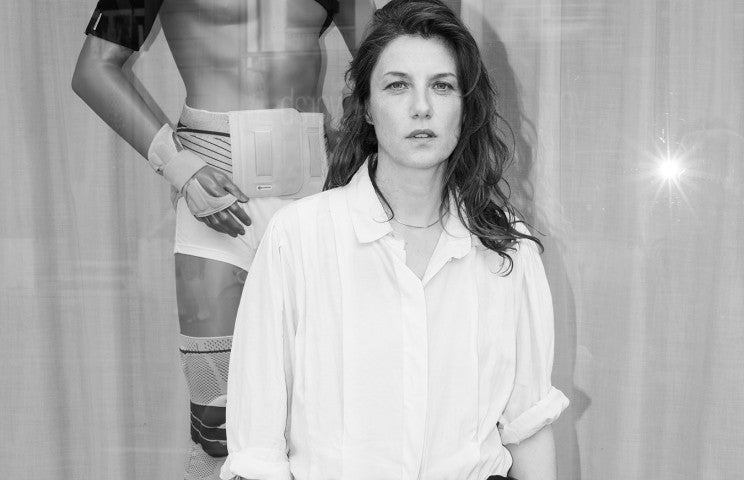Collection Icônes Debord, Chaplin and Prince
The challenge of the Icônes collection is to understand the most important figures of contemporary culture in all fields, from literature to sports, including the arts and sciences, in order to grasp their work through a personal and profound reading.
For this second meeting with the Collections Icônes, published by Les Pérégrines, the Pernod Ricard Foundation is hosting a meeting between authors Laurent Jullier for Debord, Rose Vidal for Chaplin and Gerald Petit for Prince.
Unlike the dictionary or biography, these works do not aim to be exhaustive, but rather to extract figures and themes (gestures, objects, notions…), whose constellation defines as accurately as possible the singularity of the character concerned.
At the same time as a gallery of portraits, the collection thus aims to form an anthology of the objects and uses of modernity, such as they are shaped by the icons.
The « Icônes » Collection is directed by Jean Cléder, lecturer in general and comparative literature at the University of Rennes 2, and Emmanuel Tibloux, director of EnsAD (École nationale supérieure des arts décoratifs) and former director of Ensba (École nationale supérieure des beaux-arts) in Lyon.
- Debord, Laurent Jullier:
« Guy Debord is conciseness itself, he gathered the substance of his ideas in twelve words: « Everything that was directly experienced moved away in a representation. » A mantra that is easily preserved. This sentence, the second in The Society of the Spectacle, is easier to understand today than in 1967. The politics of spectacle, the omnipresence of screens and surveillance cameras, the addiction to cell phones and the staging of oneself on social networks, all go in the same direction: the reign of appearances, of the look, of the spectacle. His defense of a classical French language and his detestation of adulterated food make Debord eminently current. Laurent Jullier invites us to take a stroll through all the « Debordian » addresses (cafés, successive homes…) to observe what they have become.
Born into a working class family in eastern France, Laurent Jullier worked in various professions before completing a thesis in film studies. He has written articles and books that defend a popular cinephilia, far from any form of elitism. He is notably the author of Héroïnes (co-written with Mélanie Boissonneau, Larousse, 2020) and Qu’est-ce qu’un bon film? (Armand Colin, reissue 2021).
- Prince, Gerald Petit:
« Introduced to music by his father, a pianist, and his mother, a jazz singer, Prince was a precocious musician. A talented multi-instrumentalist, he landed a contract that allowed him, at the age of eighteen, to become a writer, composer, performer and producer. A real workaholic, he quickly became a major musician and singer who shook up the music industry. Fascinated by his charisma and his genius, Gerald Petit retraces the construction of this prodigious destiny and leads us to follow this artist who never stops surpassing himself and multiplies his wanderings between a public confirming his aura and a skeptical critic due to his unpredictability. Gerald Petit offers a fine analysis of the strategy of conquest of this beast of the stage who, relentless businessman by day and creative machine by night, is constantly on the lookout and does not miss an opportunity to perform.
Artist and graduate of the National Superior School of Fine Arts in Dijon, Gerald Petit teaches painting in the school’s Plastic Expression college. His work has been the subject of numerous solo exhibitions, notably at the Palais de Tokyo in 2008, at the Ricard Corporate Foundation in Paris 2013, and at the Triple V Gallery in 2017.
- Chaplin, Rose Vidal:
« A popular actor turned iconic director, Chaplin succeeded in moving cinema from technique to art. From The Kid (1921) to The Great Dictator (1940), his films always carry, underneath their comic underpinnings, a great political force. Often funny, even downright burlesque, his characters, especially that of Charlie the Tramp, place emotional, financial and political insecurity at the heart of each film. His acting and the constitution of his characters show an exacerbated sensitivity to a whole range of human existences. In this Chaplin, the artist Rose Vidal questions with sincerity and finesse the legacy left to us by the man who marked her childhood. Through entries as diverse as childhood, crowds, scenery or silence, she tries to discern the depths behind the surface of the icon, the melancholy in his humor, she analyzes the place of the body in his cinema and the intimate singularity of the universal figure. »
Rose Vidal is an art critic and artist. Born in 1997 in Paris, where she lives and works, she regularly contributes to the online medium AOC with writings on art, cinema, literature, and more broadly on contemporary creation. Trained at the École des Arts Décoratifs de Paris after studying literature, her work explores a protean plastic creation, combining the production of objects, texts, fictions and images with the practices of performance, the body and language.








